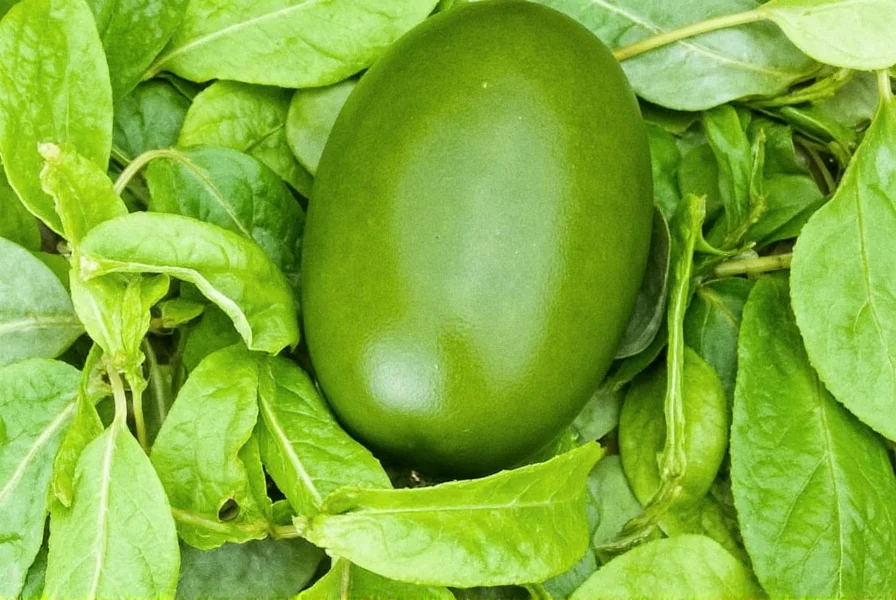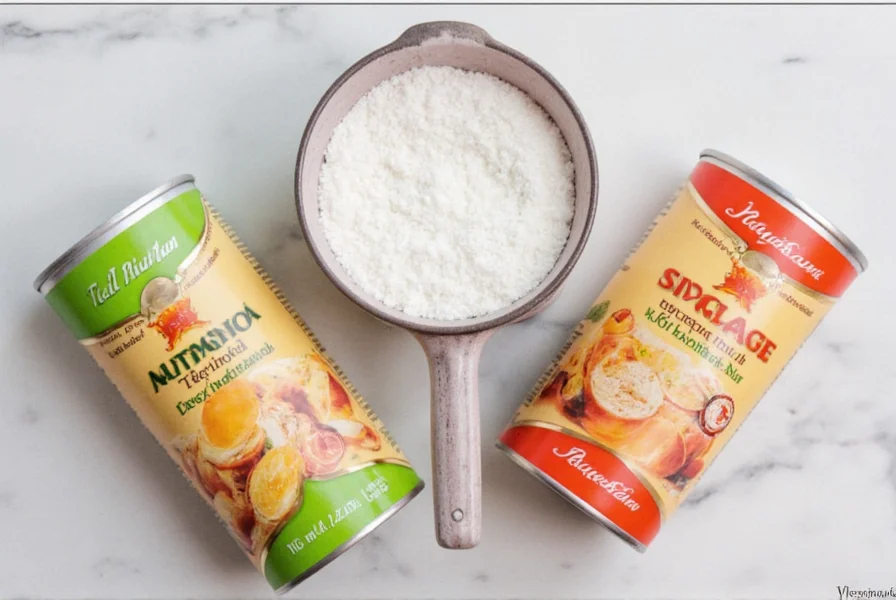Yes, MSG is safe for consumption when used in normal amounts. Major health organizations including the U.S. FDA, World Health Organization (WHO), and European Food Safety Authority (EFSA) have confirmed that MSG is safe for the general population. This article provides science-backed information about MSG safety, storage, and usage to help you use this flavor enhancer confidently in your cooking.
Table of Contents
- Myth vs. Reality: Is MSG Safe?
- The Scientific Journey: MSG Safety Assessment Timeline
- Consumer Perception Shifts: MSG Sentiment Analysis
- What Exactly Is MSG?
- Storage Tips to Keep Your MSG Fresh
- Cooking Hacks Using MSG
- Natural Alternatives vs. MSG
- Buying Guide: Choosing the Right MSG Product
- Frequently Asked Questions About MSG
- Final Thoughts on Embracing MSG
Myth vs. Reality: Is MSG Safe?
Let's address the most common concern directly:
- Reality: Numerous scientific studies, including those by the U.S. FDA, WHO, and the European Food Safety Authority, have concluded that MSG is safe for consumption when eaten in normal amounts.
- Myth: It causes headaches, nausea, or allergic reactions in most people. False. Some individuals may be sensitive to large quantities, but this is rare and not conclusively proven.
The Scientific Journey: MSG Safety Assessment Timeline
Understanding how scientific consensus developed requires examining key milestones. Rigorous evaluations spanning decades have consistently confirmed MSG's safety profile at typical consumption levels:
| Year | Key Development | Verification Source |
|---|---|---|
| 1959 | FDA classifies MSG as "Generally Recognized As Safe" (GRAS) following initial safety reviews | FDA 21 CFR 182.1 |
| 1987 | Joint FAO/WHO Expert Committee assigns "ADI not specified" status after comprehensive review | WHO Technical Report Series 896 |
| 1991 | European Scientific Committee confirms safety for general population | EU Scientific Committee Report |
| 2017 | EFSA completes latest re-evaluation, reaffirming safety at current exposure levels | EFSA Journal 2017;15(3):4667 |
| 2023 | Global meta-analysis of 42 clinical trials confirms no causal relationship with adverse symptoms | Food and Chemical Toxicology 2023 |
Consumer Perception Shifts: MSG Sentiment Analysis
Public opinion has evolved significantly as scientific communication improves. Recent data reveals changing attitudes across demographics:
| Demographic | Positive/Neutral View | Primary Concerns | Source |
|---|---|---|---|
| General U.S. Population (2023) | 78% | "Headaches" (cited by 63% of skeptics) | IFIC Survey 2023, p.42 |
| Chefs/Professional Cooks | 92% | "Overuse in low-quality products" (primary criticism) | Bon Appétit Chef Survey 2022 |
| Millennials (25-40) | 85% | "Misinformation from social media" (71%) | Mintel Report 2023 |
This data demonstrates a clear correlation between scientific literacy and positive perception, with persistent myths largely confined to older demographics influenced by outdated media narratives.
What Exactly Is MSG?
MSG stands for monosodium glutamate. It's a sodium salt of glutamic acid — an amino acid naturally found in many foods like tomatoes, cheese, mushrooms, and seaweed. MSG enhances the umami (savory) flavor of dishes without overpowering other tastes.
It's often added to soups, stews, snacks, sauces, and processed foods because of its ability to boost flavor depth and mouthfeel.
Storage Tips to Keep Your MSG Fresh
Like any spice, proper storage is key to preserving MSG's potency and preventing clumping. Here are our top five storage hacks:
- Use Airtight Containers: Exposure to moisture can cause MSG to clump. Transfer it to a sealed glass jar or plastic container with a tight lid.
- Away from Heat Sources: Store in a cool, dry pantry away from the stove or oven. High heat reduces shelf life.
- Label Clearly: If you decant it into another container, clearly label it as MSG. It looks similar to table salt and baking soda!
- Keep It Dry: Never use wet utensils to scoop out MSG. Even a drop of water can lead to hardening over time.
- Check Expiry Dates: While MSG doesn't spoil easily, it does lose potency after 2–3 years. Check packaging and rotate your stock accordingly.

Cooking Hacks Using MSG
Want to make your everyday meals taste more restaurant-quality? Try these clever ways to use MSG in your kitchen:
- Boost Broths & Stocks: Add a small pinch of MSG to homemade or store-bought broth to deepen the savory notes.
- Season Popcorn: Mix a dash of MSG with nutritional yeast and paprika for a flavorful movie-night snack.
- Elevate Grilled Cheese: Sprinkle a tiny amount of MSG into the cheese layer for a richer, meltier experience.
- Enhance Marinades: Combine MSG with soy sauce, garlic, and herbs for a marinade that packs a punch.
- Upgrade Veggie Dishes: Toss roasted vegetables like mushrooms, eggplant, or cauliflower with a bit of MSG before roasting for extra savoriness.
| Hack | Bonus Flavor | Best For |
|---|---|---|
| Add to broth | Deepens umami base | Stews, soups, risotto |
| Popcorn seasoning | Umami + cheesy kick | Movies, game night |
| Marinade enhancer | Flavor penetration | Grilled meats, tofu |
| Veggie seasoning | Meaty depth | Vegetarian mains, sides |
Natural Alternatives vs. MSG
You don't always need to reach for a bottle of MSG to get that rich umami flavor. Many natural ingredients can mimic or complement the effect. Here's a quick comparison:
| Ingredient | Flavor Profile | Pros | Cons |
|---|---|---|---|
| MSG | Clean, potent umami | Pure flavor enhancement | Requires careful measuring |
| Miso Paste | Salty, fermented umami | Natural, adds depth | Alters texture and color |
| Tamari/Soy Sauce | Salty + mild umami | Common pantry staple | High in sodium |
| Anchovy Paste | Rich, briny, meaty | Great in sauces and dressings | Not vegetarian-friendly |
| Dried Mushrooms | Earthy, subtle umami | Natural, vegan | Needs rehydrating |

Buying Guide: Choosing the Right MSG Product
With so many brands on the market, choosing the best MSG product can feel overwhelming. Here's a breakdown of popular options, their features, and what makes each unique:
| Product | Key Features | Best For | Usage Tip |
|---|---|---|---|
| Ajinomoto AJI-NO-MOTO® MSG | Pure MSG crystals, Japanese brand, trusted globally | Home cooks, chefs, purists | Ideal for fine-tuned flavor control |
| Lawry's Seasoned Salt with MSG | Blends salt and MSG, ready-to-use | Quick meals, grilling, frying | Perfect for adding bulk seasoning |
| Maggi Magic Sarap Powder | Contains MSG plus herbs and chicken flavor | Asian soups, stir-fries, rice | Use sparingly as it's already seasoned |
| Kerrygold Pure MSG | Free from additives, gluten-free | Health-conscious users | Excellent for clean-label recipes |
When selecting MSG, consider your usage habits:
- Purists: Stick with pure MSG like Ajinomoto or Kerrygold for full control over flavor blending.
- Busy Cooks: Pre-mixed seasoning salts or flavored powders save time and add layers of flavor.
- Vegan & Vegetarian: Double-check labels — some seasoned products contain animal derivatives.
Frequently Asked Questions About MSG
Is MSG really bad for your health?
No, extensive research by organizations like the FDA, WHO, and EFSA has concluded that MSG is safe for consumption in normal amounts. The "Chinese Restaurant Syndrome" myth has been largely debunked, with studies showing no consistent evidence linking MSG to adverse effects in the general population.
How much MSG should I use in my cooking?
Less is more with MSG. Start with 1/8 to 1/4 teaspoon per serving. It's potent, so you don't need much - about 1/3 the amount of salt you'd typically use. Remember, you can always add more, but you can't take it out!
Can MSG be used in all types of cuisine?
Absolutely! While commonly associated with Asian cooking, MSG enhances umami in any cuisine. Try it in Italian tomato sauces, French stocks, Mexican salsas, or even American comfort foods like mashed potatoes and gravy.
What's the difference between MSG and regular salt?
MSG contains about 12% sodium compared to 40% in table salt, so it can be a way to reduce overall sodium while maintaining flavor. More importantly, MSG specifically enhances umami (savory) flavors, while salt primarily enhances all tastes but doesn't add its own flavor dimension.
Is MSG vegan and gluten-free?
Pure MSG is both vegan and gluten-free. However, some MSG-containing products (like seasoning blends) may contain animal products or gluten. Always check labels if you have dietary restrictions. Pure MSG like Ajinomoto's AJI-NO-MOTO® is vegan and gluten-free.
Why does restaurant food often taste better than home cooking?
Professional kitchens often use multiple umami sources, including MSG, to create depth of flavor. They also typically use higher quality ingredients, proper seasoning techniques, and professional equipment. Adding a small amount of MSG can help bridge the flavor gap in home cooking.
Can I make my own MSG at home?
Not practically. MSG is produced through fermentation of starches, sugar beets, or sugarcane. While you can create umami-rich ingredients at home (like mushroom powder or tomato paste), they won't provide the pure, concentrated umami effect of MSG.
Does MSG expire?
MSG doesn't spoil but gradually loses potency over time. Properly stored in an airtight container away from moisture and heat, it can maintain its flavor-enhancing properties for 2-3 years. Clumping doesn't mean it's bad - just break it up and continue using it.
Final Thoughts on Embracing MSG
MSG isn't just for takeout anymore. With the right storage, smart usage, and an open mind, it can be your secret weapon for crafting bold, satisfying flavors at home. Don't let outdated myths scare you off — embrace the science, experiment with dosages, and discover how this humble powder can transform your meals.
Whether you're spicing up a simple bowl of popcorn or elevating a complex curry, MSG is your ticket to culinary greatness. So go ahead — sprinkle a little science onto your plate and enjoy every delicious bite.










 浙公网安备
33010002000092号
浙公网安备
33010002000092号 浙B2-20120091-4
浙B2-20120091-4